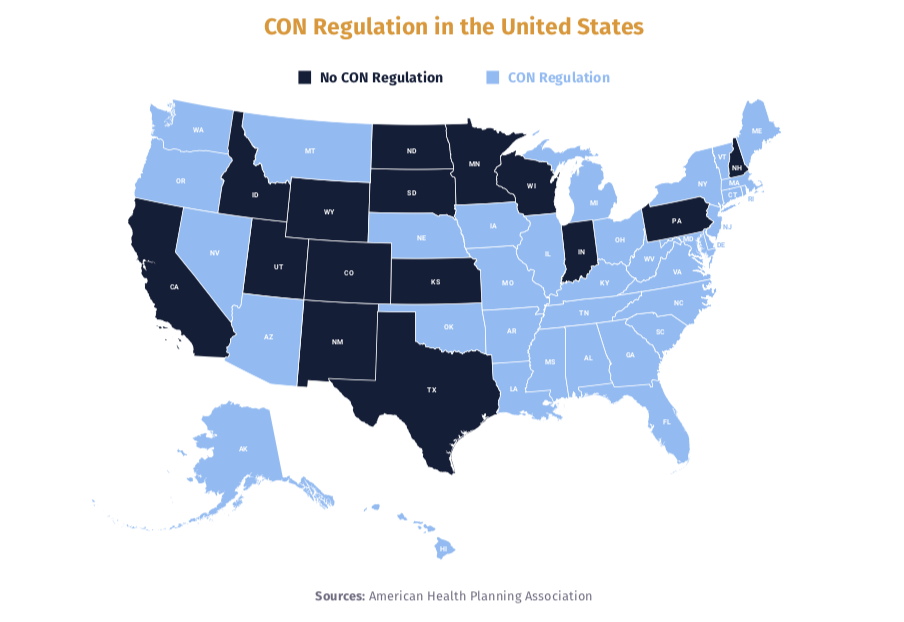Mississippi is one of 35 states that require a certificate of need for healthcare providers. They must receive approval from the state Department of Health to build a new facility, add beds or diagnostic equipment to an existing facility, or even when a capital project goes over budget.
Every major attempt at reform in the past four years for Mississippi’s certificate of need program has failed. Former state Rep. Mark Baker (R-Brandon) tried three times to completely eliminate the state’s CON regime in 2015, 2016 and 2017 and all three bills died in committee without a floor vote.
Former state Rep. Robert Foster (R-Hernando) also filed a reform bill in 2016 that would’ve removed most health care services and equipment from CON oversight. It also failed in committee.
The only CON reform passed by the legislature and signed into law in the last four years was a bill authored by state Sen. Josh Harkins (R-Flowood) that revised the time requirements and required public notices be issued before CON approval.

CONs originated from the National Health Planning and Resources Development Act of 1974 that was signed into law by then-President Gerald Ford. The goal was to curtail constant increases in federal health care spending by inexplicably regulating the number and services rendered by providers.
One of the cost control measures was to require states to institute CON laws to regulate health care facilities, with Mississippi passing its CON law in 1979.
The CON program in Mississippi regulates:
The way the process works is a provider submits an application for a new CON or an amendment to an existing CON. Officials use a document called the State Health Plan to determine whether to authorize the CON.
This state health plan determines the health care needs of the state’s population, a classic case of central planning.
Where the CON hurts most is rural hospitals. According to a national report of rural hospitals, 31 of Mississippi’s 64 rural hospitals are at high financial risk. Nationally, 21 percent are listed in danger of closing their doors.
Scholars at the free-market Mercatus Center at George Mason University found that patients were more likely in states with a CON regime to have to travel outside their county for care. Using 25 years of data and controlling for factors that might influence the numbers of hospitals, states with CONs have 30 percent fewer rural hospitals per 100,000 residents.
Eliminating the CON could also reduce healthcare costs, according to some research.
A 2016 study by the federal National Institutes of Health showed that Medicaid and Medicare spending per enrollee in nursing homes declined in all states during the study, but the rate of decline was higher in states without CON policies.
The study examined Medicare and Medicaid spending on nursing homes and home health care in 44 states that didn’t change their CON laws from 1992 to 2009.